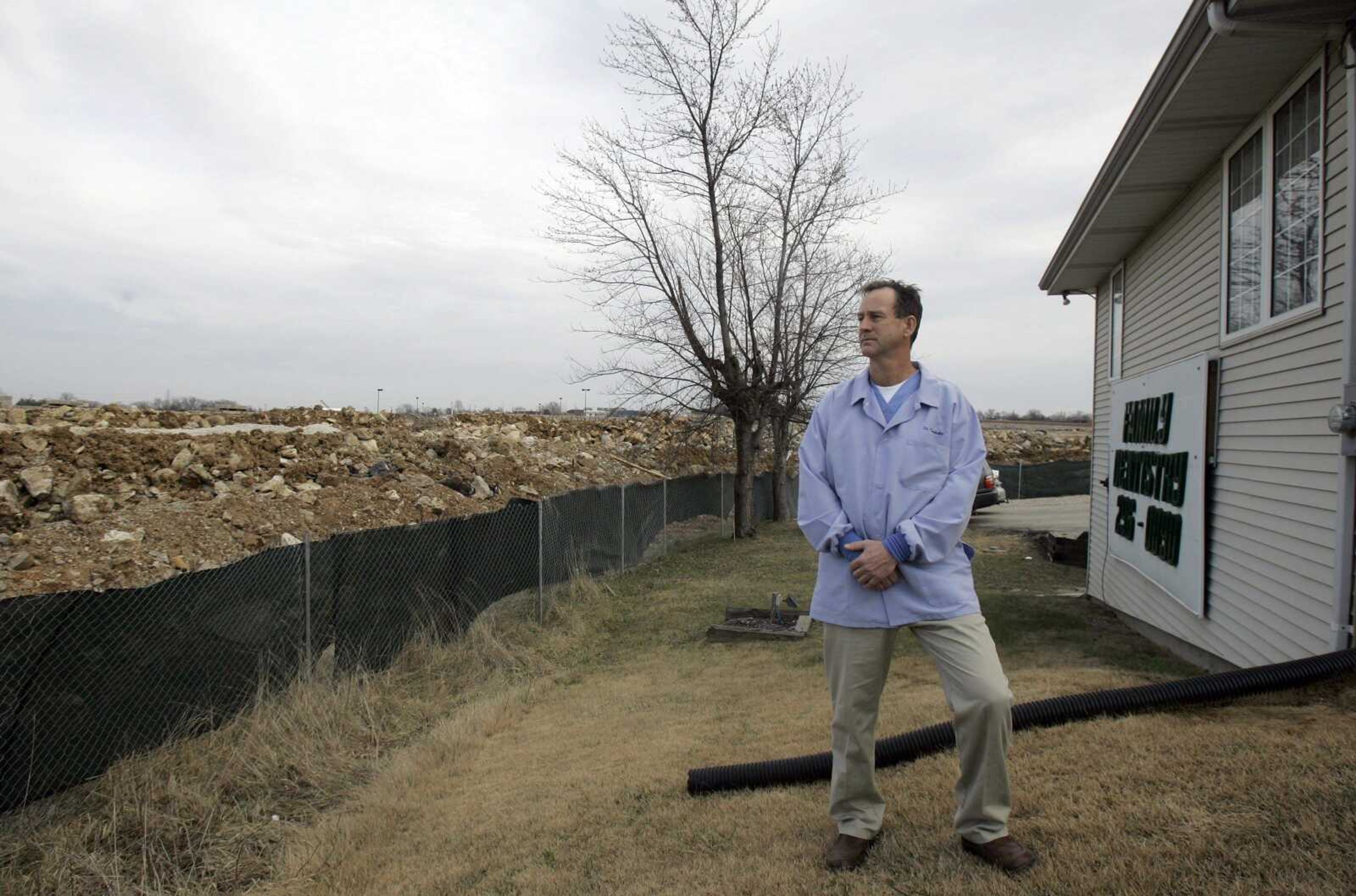JEFFERSON CITY, Mo. -- A dentist asked the state Supreme Court on Thursday to prevent a St. Louis suburb from taking his property -- a request that could affect property owners in hundreds of cities around the state.
The hearing, which drew an overflow audience, could make it more difficult for most of Missouri's cities and villages to use eminent domain to take private property and then use it for private development supported by special tax breaks.
In Thursday's arguments, an attorney for Homer Tourkakis said the state constitution sets limits on which cities can use eminent domain to clear space for private development. Timothy Sandefur, from the Pacific Legal Foundation, said without the restriction, "every town could use eminent domain to take your home, take your property away."
But an attorney for the city of Arnold said eminent domain authority shouldn't be limited to select cities.
Essentially, the argument involves how provisions in state law overlap.
Arnold is trying to use a law that allows for special tax breaks, called tax increment financing, in which a portion of future tax revenue is diverted to pay for the project. Part of that provision also lets municipalities use eminent domain to take "blighted" properties, so long it's not prohibited elsewhere in state law.
But what is unclear is whether a provision in the state constitution that allows "charter" cities to use eminent domain to clear up blighted areas also prevents noncharter cities from taking private property. A charter city is a municipality that, when it was incorporated, had at least 5,000 people and whose residents have approved what is essentially a local constitution.
To clean up problem neighborhoods, the state constitution allows that: "laws may be enacted, and any city or county operating under a constitutional charter may enact ordinances, providing for the clearance, replanning, reconstruction, redevelopment and rehabilitation of blighted, substandard or insanitary areas."
Sandefur argued that cities without a constitutional charter -- including Arnold -- cannot use eminent domain to make space for redevelopment projects, unless state lawmakers pass legislation allowing it.
Arnold's attorney, Jerry Carmody, said the constitution gives eminent domain authority; it doesn't limit it.
He said allowing some cities to use it and barring others doesn't make sense, because it would create a burden on cities trying to fix problems.
"To suggest that only charter cities have the competence, the people, the wherewithal to take of their people is ludicrous," Carmody said. He said the state Supreme Court has allowed all municipalities to use eminent domain and has even extended the power to cover private redevelopment companies.
According to population statistics from 2006, about two-thirds of Missourians live in noncharter cities.
Case is City of Arnold v. Homer R. Tourkakis, SC88647.
Connect with the Southeast Missourian Newsroom:
For corrections to this story or other insights for the editor, click here. To submit a letter to the editor, click here. To learn about the Southeast Missourian’s AI Policy, click here.







